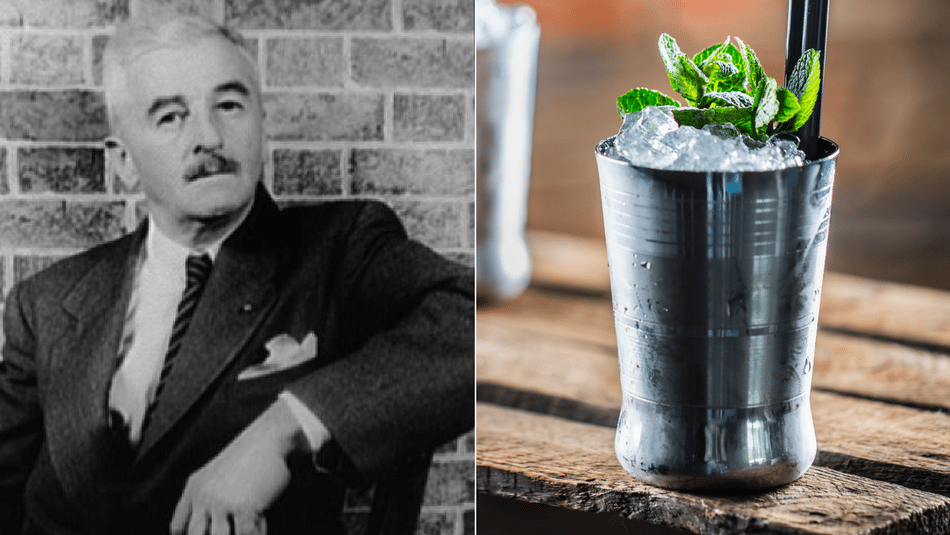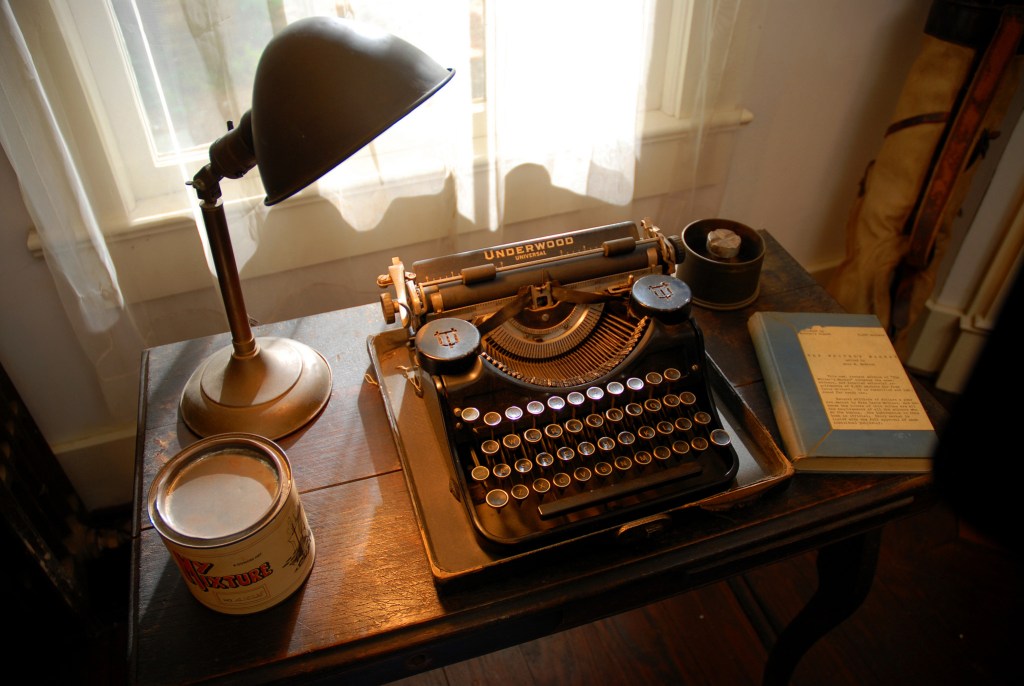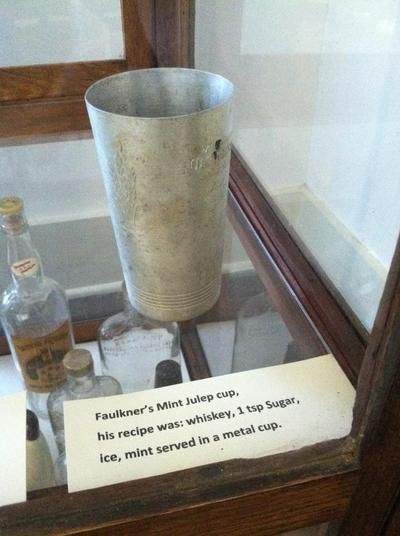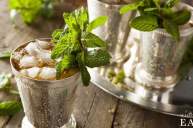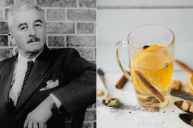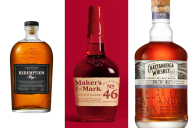It's impossible to separate the Kentucky Derby from the mint julep drink. It's not a horse race in May if there aren't fancy hats, a sing along of "My Old Kentucky Home," and a cold metal cup in hand. And although writer William Faulkner was from Mississippi, not Kentucky, the mint julep is forever tied to the Nobel Prize laureate as well.
Videos by Wide Open Country
The mint julep was one of Faulkner's signature drinks (the other was a hot toddy), so much so that during his over 20 years writing screenplays in Hollywood, the bartenders at Musso and Frank's Back Room allowed him behind the bar to make his own mint julep.
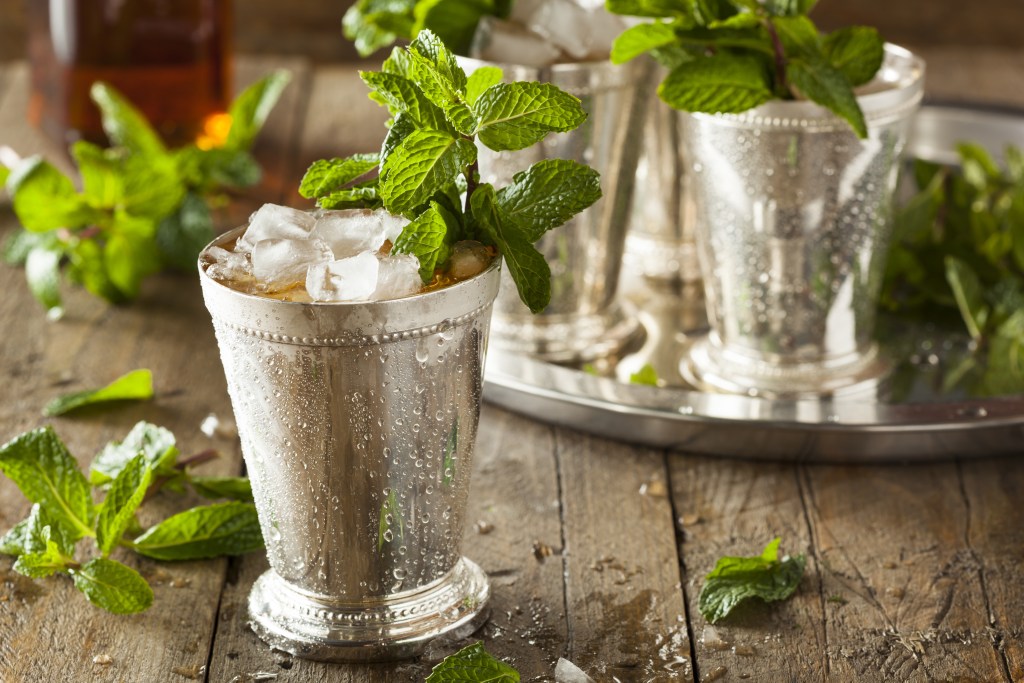
Maybe it's not surprising then that the writer and the race crossed paths. In 1955, Sports Illustrated invited Faulkner to cover the 81st running of the Kentucky Derby.
Faulkner was no stranger to horses, as his father had owned a livery stable in Oxford, and he loved to ride. Horses also featured in some of his work; his last novel The Reivers culminates in a horse race.
But his knowledge wasn't why the fledgling magazine wanted him. They were looking for A-level talent to raise the profile of the publication, and Faulkner had already won his first Noble Prize in Literature. In fact, it was as Faulkner arrived in Louisville, Kentucky, in May 1955 that he learned he had just been awarded the Pulitzer Prize for Fiction.
Faulkner was the first well-known author to write for the new magazine (Sports Illustrated began publishing in 1954). His assignment was to cover the days leading up to the race, while regular Sports Illustrated writer Whitey Tower would cover the actual race.
In 1985, Tower wrote a piece for The New York Times recalling his (at that time) 37 years of Derby coverage and included a remembrance of watching over Faulkner.
"Faulkner saw Swaps whip Nashua in the memorable Derby of 1955, but what he relished most of all during his week in Louisville was an introduction to Red Smith and a visit to the aging stallion Mahmoud at a Lexington farm. Faulkner wrote 300 words a night on his old portable, and the Western Union chief to whom I turned this copy in around midnight thought I was playing a game with him. All 300 words were written without punctuation of any sort, not even a final period."
The story goes that Tower was supposed to keep Faulkner away from the whiskey, at least enough to turn in 300 words a night. None of the stories about that week note if Faulkner indulged in the Derby's official drink while he was at Churchill Downs, but I like to think that the man who loved both horses and bourbon wouldn't have passed up the opportunity.
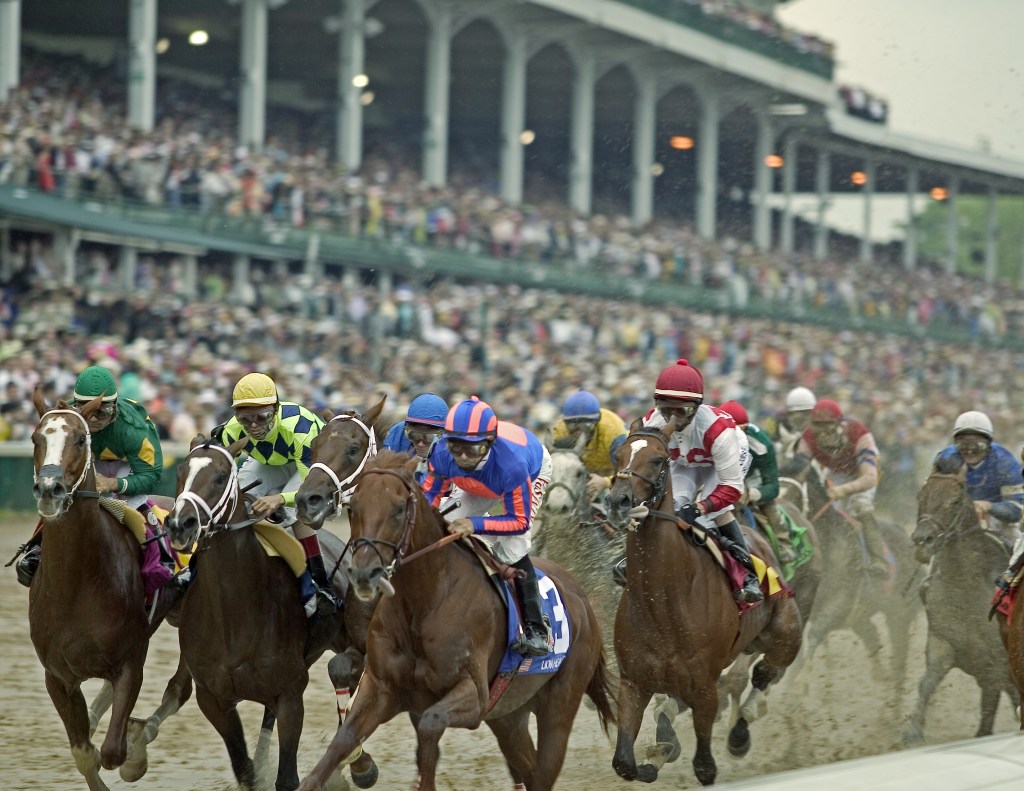
The Kentucky Derby sometimes feels like a relic, something out of Faulkner's South, and perhaps something that belongs there, in history, and not in today's modern world of technology and practicality and equality (as uneven and faltering as those things can still be).
Faulkner alludes to that feeling of potential obsolescence, even in 1955, when he says about horses and horse races in particular:
"It will endure and survive until man's own nature changes. Because you can almost count on your thumbs the types and classes of human beings in whose lives and memories and experience and glandular discharge the horse has no place. These will be the ones who don't like to bet on anything which involves the element of chance or skill or the unforeseen. They will be the ones who don't like to watch something in motion, either big or going fast, no matter what it is. They will be the ones who don't like to watch something alive and bigger and stronger than man, under the control of puny man's will, doing something which man himself is too weak or too inferior in sight or hearing or speed to do."
So as long as there are people willing to stop for the most exciting two minutes in sports, people willing to drink bourbon and mint and sugar in metal cups, and people willing to wear beautiful, impractical hats, there will be a Kentucky Derby.
And if you're not at Churchill Downs this May, take a moment to read a fine sports story and lift a cup to one of the best writers to ever cover the race.
Faulkner's julep cup is on display today at his home in Oxford, Mississippi, along with the simple recipe: whiskey (preferably bourbon), one teaspoon of sugar, a sprig or two of crushed mint, and ice.
William Faulkner's Mint Julep Recipe
- Bourbon whiskey, 2.5-3 ounces
- One teaspoon of sugar
- One or two sprigs of fresh mint
- Ice, crushed
Place the mint leaves and sugar in the bottom of the glass and crush the mint leaves, mixing them with the sugar. (To be completely authentic, use a pewter cup that's been sitting in the refrigerator or freezer long enough to be frosted.)
Fill the glass or cup with crushed ice, then add the bourbon. Add a few mint leaves to the top of the ice or stick a sprig in the glass.

